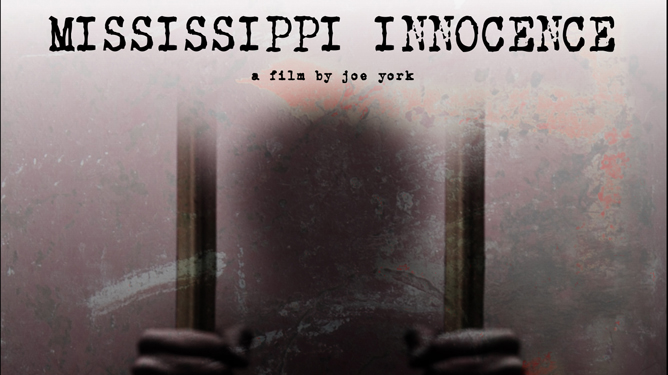… Curriculum released to help educators discuss film’s issues
OXFORD, Miss. – What will it take to instigate lasting change in the entrenched errors of our criminal justice system?
The Mississippi Innocence Project at the University of Mississippi School of Law, along with the university’s Media and Documentary Projects Center, scrutinizes that issue in their documentary “Mississippi Innocence,” set to air at 9 p.m. Thursday (May 3) on Mississippi Public Broadcasting.
The film, directed and produced by Joe York and Andy Harper of the documentary projects center, and co-produced by Innocence Project director Tucker Carrington, examines the wrongful convictions of two Noxubee County men, Kennedy Brewer and Levon Brooks, who spent more than 30 years in prison for crimes they did not commit. The men were freed in 2008 through the work of several lawyers, including student attorneys at the Mississippi Innocence Project.
“Through the film, we not only hope to expose failures in our justice system, but we also hope to incite efforts to prevent these failures from occurring in the future,” Carrington said. “We think one way to do that is to inspire the hearts and minds of a culture that has been apathetic to this system for far too long.”
The film also explores Brewer’s and Brooks’ exonerations and their lives as free men. In depth interviews with many involved in litigation and with members of their families help tell the story.
“You cannot watch the film without being affected by it,” said Richard Gershon, dean of the Ole Miss law school. “These exonerations would not have happened had it not been for the great work of the lawyers involved. Two innocent men are free today because of the efforts chronicled in this amazing film.”
To locate a Mississippi Public Broadcasting channel in your area, go to http://mpbonline.org/TV_Radio/about_mpb_tv
In conjunction with the film, the Innocence Project staff has developed curriculum for use in Mississippi and beyond at the high school, college and law school levels. It is a resource for educators and other related professionals to stimulate in-class discussion about the documentary’s themes.
Though developed by the Mississippi Innocence Project, the curriculum was made possible, in large part, through a grant from The Fledgling Fund, an organization that funds select media projects highlighting complex social issues and offering solutions. More than 375 applications were received for the grant, and “Mississippi Innocence” received one of 10 given.
“We feel very fortunate to have received this grant to be able to develop our curriculum,” Carrington said. “It will help those viewing the film to really grapple with the core issues found in this case.”
The curriculum is free for download and the DVD is free for Mississippi educators and available for purchase for teachers in other states. Both will be available at the end of May.
For more information about downloading the curriculum, purchasing the film or the Mississippi Innocence Project, go to http://mississippiinnocencefilm.com or contact Carol Mockbee at 662-915-6000.
The Mississippi Innocence Project seeks to identify and address systemic problems in the criminal justice system and to develop initiatives designed to raise public and political awareness of the prevalence, causes and societal costs of wrongful convictions.
